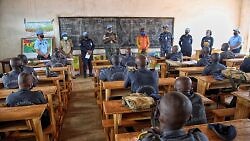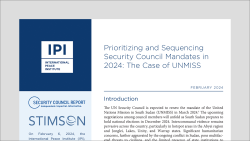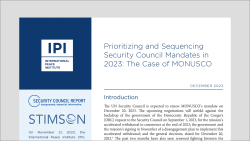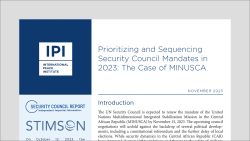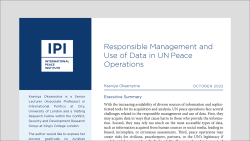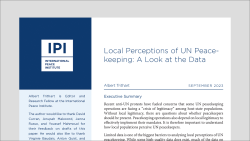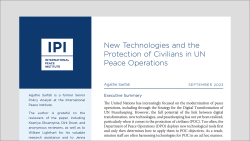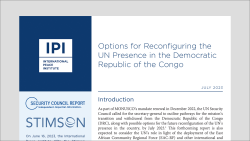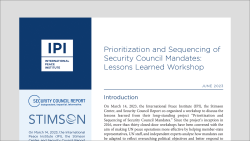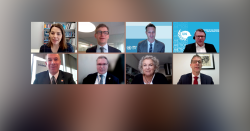
IPI together with the Permanent Missions of Finland and The Kingdom of the Netherlands to the UN cohosted a policy forum on March 20th on the topic of “Specialized Police Teams in UN Peace Operations: A Survey of Progress and Challenges.”United Nations police (UNPOL) efforts to support peace and security around the world have evolved […]
Read more